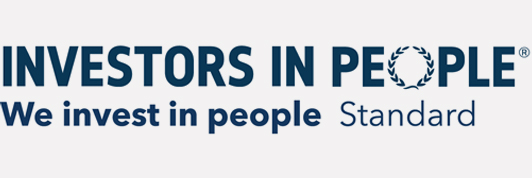
Orthodontic Therapy
Diploma in Orthodontic Therapy
This course is delivered by Orthodontic Team Training; the qualification is awarded by Dental Team Qualifications: denteamqual.com
Orthodontic Team Training has Investors in People accreditation and is a main apprenticeship provider. Dental Team Qualifications (DTQ) is an Ofqual recognized organization; the Ofqual Qualification number for the Diploma in Orthodontic Therapy is 603/7122/5.
Background
The Orthodontic Team Training Diploma in Orthodontic Therapy course has been successfully running for over 15 years, originally awarded by the University of Warwick, but more recently by Dental Team Training (DTQ). Delivered by a very experienced team of clinician/educators, our programme has been researched as part of a PhD Thesis in Orthodontic education. As such, our programme is educationally evidence-based, with teaching continually evolving, based upon feedback from students, trainers and tutors.
Facilities
Course teaching is delivered from the Leamington Spa Orthodontic Centre, housed within a six-storey Regency building in the heart of Leamington Spa and within a short walk from the railway station. Facilities have been developed specifically for teaching and include a fully equipped lecture suite seating up to thirty students, a camera/video link to one of our surgeries in the building, enabling hands-on style demonstrations of clinical procedures to the lecture theatre. Our clinical skills laboratory is also linked to the lecture theatre and surgery. Video-conferencing allows off site links to other facilities worldwide, with full internet access. Other facilities include eight fully equipped, computerised surgeries, full digital 3D cone beam, cephalometric and orthopantomograph radiography, digital scanning and clinical photography, an onsite orthodontic laboratory and technical support.
Course Details
Aims
The Diploma in Orthodontic Therapy course has been designed and is continuously evolving, in order to not only give Dental Care Professionals the training and experience required to become a registered Orthodontic Therapist, following the requirements laid down by the General Dental Council (GDC), but also to equip students with the knowledge, skills and behaviours required for 21st Century orthodontic practice.
Learning Outcomes
The Learning Outcomes are grouped into four domains by the GDC.
These are integrated and support each other:
- Clinical
- Communication
- Professionalism
- Leadership and Management
By the end of the course, students should be able to:
- Define theoretical principles and apply these principles to the practice of orthodontics
- Describe those aspects of the biomedical sciences, oral physiology and craniofacial, oral and dental anatomy that are significant in the management of patients
- Apply critical appraisal techniques to published literature
- Select and manipulate appropriate dental biomaterials used by the orthodontic therapist
- Understand the principles of evidence-based orthodontics
- Apply anatomical and physiological principles to the field of orthodontics
- Have acquired appropriate orthodontic clinical skills
- Recognize and use orthodontic systems
- Understand and follow a prescribed treatment plan
- Satisfy medico-legal requirements
- Apply functional anatomy and physiology to clinical situations
- Communicate effectively both orally and in written form
- Work effectively as part of a team
- Problem solve
- Use Information Technology (IT) effectively
- Have effective numeracy skills
Course Structure
- Modular format, divided up into six overlapping modules.
- Core teaching is delivered at the start of the course using a blended learning approach, including both study sessions and face to face practical sessions. Study sessions are integrated alongside the student working in their own orthodontic training practice/centre. This allows time for students to assimilate what will be a large amount of new knowledge.
- Further teaching days will be spread out over the remainder of the course duration.
- Time has been allocated in this part of the course to cover subjects which students may feel require additional support, and to undertake “mock assessments” prior to the final examination.
- Workplace based training during the course will be supervised by the trainer(s). Trainers must be a specialist orthodontist in a specialist practice, hospital or community orthodontic department.
Course Delivery
- Lectures and demonstrations will be presented, using the latest multimedia teaching techniques, to introduce students to the basic theory of orthodontics.
- Practical sessions using typodont models, in our fully equipped clinical skills laboratory at the Leamington Spa Orthodontic Centre, allow hands-on experience to be gained in appliance placement and adjustment.
- Observation days with the whole orthodontic team in clinical practice, following the whole patient journey.
- The theoretical aspects of subject matter will be delivered via a blend of lectures, small group seminars, tutorials, and case-based learning and cover the principal aspects of orthodontics both virtually and face to face. An emphasis will be placed on developing the clinical skills required in orthodontic treatment.
- The principles of record keeping will be covered including clinical, photographic and radiographic examination. The need for high quality records to be produced by therapists as part of a contribution to the overall excellence in treatment will be stressed. The important area of retention of the final result will be clearly addressed and training in placement of both fixed and removable retainers will be fully covered.
- At consultation sessions, students will be assessed clinically and advice given on the composition of consent letters, including guidance on the regulations.
- At the hands-on clinical teaching sessions, students will learn appliance placement techniques and observe and assist in clinical procedures. Experience will be gained on surgery set-up, equipment identification and overall orthodontic practice management.
- Summative assessments will take place at the end of each module.
eLogbook
The eLogbook is an electronic storage area for clinical activity reporting. The Clinical Practice module, Module 6, is monitored weekly via the eLogbook. Students are required to complete the recurring weekly activity pages as a record of all clinical activity, including reflection of their progress throughout each week, with a section which allows students to complete a detailed reflection on a specific activity which they have carried out or observed.
Students should also use the eLogbook for the uploading of clinical activity as advised by tutors, including clinical cases for an ongoing record of their clinical experience in practice, which will also form part of the final examination.
Assessment and Homework
Students will be set homework tasks periodically throughout the course. Some may be formative assessments, set to aid understanding and development of knowledge, skills, behaviours and abilities.
We hope you will find this course professionally and academically rewarding. Education is very much a two-way process and we welcome your views on all aspects of the course.
Trainer and Student Commitment
Student |
Trainer |
|---|---|
|
Students must currently be working closely with their trainer, in a clinical role within the specialist Orthodontic practice for a minimum of 3 days (21 hours) per week or 5 days (30 hours) per week for an apprenticeship. |
Trainers are to be available to support students throughout both their clinical and theoretical learning journeys via dedicated tutorial times (to be decided between the trainer and student) and close clinical contact.
|
|
Upon successful application, the student must continue to fulfil the essential clinical working time as above, working closely with their trainer for a minimum of 3 days (21 hours) per week, or a minimum 30 hours per week for an apprenticeship. |
Trainers must complete calibration and training exercises set by the programme as a GDC requirement, to ensure that quality of training is standardised and consistent across all students. |
|
Students must attend all training sessions throughout the course calendar. |
Trainers must facilitate the student being absent from the clinic to allow their attendance to all set core study sessions. |
|
Due to the competitive nature of the application process, students must ensure that they meet as many of the ideal entry requirements as possible prior to submitting their application. |
Trainers are to be available to attend and partake in ‘Trainer sessions’ alongside the student group on 3 dates during the teaching calendar. |
For further information and an Application Pack email applications@orthodonticteamtraining.com
Apply Now










